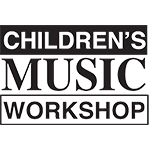Instrument Choices
• Kindergartners may choose violin or recorder.
• First graders may choose the violin, recorder or piano/keyboard.
• Second graders may choose violin, recorder, ukulele, piano/keyboard, flute, clarinet, or trumpet.
• Third through eighth graders may choose violin, cello, flute, clarinet, alto sax, trumpet, guitar, ukulele, or piano/keyboard.
Lesson Days and Times
Thirty to forty minute lessons are offered seven days a week. See link at bottom to contact us with your day/time preferences and we will do our best to accommodate your request.
Program Costs
No payment is needed now. We’ll contact you about the availability of lessons and payment instructions after we receive your information. Costs vary depending on length of session and instrument choice.
Discounted instrument rental and purchase prices have been arranged for participating music students through our instrument supplier.
